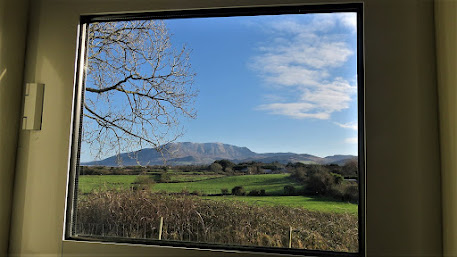Am I the oldest new member of the ADHD club? At age sixty-nine, why bother with a diagnosis and treatment?
That was the attitude of my new and now former primary care provider. She said that the prefrontal cortex develops out of ADHD in adulthood, or that people learn workarounds for its difficulties.
She didn't ask about
my prefrontal cortex, or whether
I had found workarounds. She thought I should just not worry about what I can't do.
As I said, former care provider.
But back to that question - why bother?
Two reasons:
Treatment for ADHD works
Sure, over those many years I developed
some workarounds, ways of coping with the challenges of my neurologically divergent (ND) brain.
But they weren't alway sufficient. There were key times in my life when I failed to reach my goals because I couldn't get started, because I couldn't keep going, because I couldn't maintain concentration, because I couldn't remember, because I couldn't turn down the emotional interference that I experienced as a consequence of all the other symptoms. SHAME! Loads of SHAME!
My workarounds got me a certificate in congregational development. But I am not the Rev. DOCTOR Willa Goodfellow, because - I couldn't.
And yet today, I still have more I want to do, big things for which my workarounds have not been sufficient in the past and are not now.
But that pill, that tiny pill, that fraction of a pill after I cut it with my pill splitter, because for me it never takes much. . .
It was like the window opened, the sky was clear, I sat down, like I am right this very minute. . .
And I worked.
That's all. I didn't speed. I didn't stay up late. I didn't go down to the schoolhouse to score some more tabs off a sixth grader.
I simply worked. My brain was clear and in gear. And I got the job done.
There are things I want to do, books I want to write and promote, podcasts on which I want to be a guest, deadlines I want to meet. And one little fraction of a pill has opened the window for me.
Treatment works.
Community for people with ADHD helps
That's the second reason to get diagnosed, community. Just like any other challenging condition, the people who have it can help each other. Breast cancer, kidney cancer, Parkinson's, depression, bipolar, alcoholism, arthritis, eating disorders - whatever you've got, hanging out with others who have it too is huge. Community offers support, reassurance, information, and resources.
Once I knew I had ADHD I no longer felt like I was keeping a shameful secret - my failure to do what everybody else on the planet could do and what I expected myself to do.
And then I discovered others.
Twitter is a godsend for all things diverse, including neurologically diverse. It's where you find the people like you. Because there are people like you.
So if you have or wonder if you have ADHD, head for the bird app. This link will take you to the posts that people have tagged with #ADHD. That's a start.
Jesse Anderson
And this link will take you to Jesse Anderson on Twitter.
Jesse has a newsletter filled with ideas and strategies to help people with ADHD manage our time, energy, and motivation - those workarounds that we all supposedly discover on our own by the time we are sixty-nine. We don't all have to reinvent the wheel by ourselves!
 Jesse has a podcast called ADHD Nerds that's just getting started. Personally, I am glad that they come in at around thirty minutes. Because who has the attention span for those ninety minute podcasts? - Not somebody with ADHD! Four episodes so far. I hope he finds it interesting enough to keep it going, because I find it interesting enough to keep listening.
Jesse has a podcast called ADHD Nerds that's just getting started. Personally, I am glad that they come in at around thirty minutes. Because who has the attention span for those ninety minute podcasts? - Not somebody with ADHD! Four episodes so far. I hope he finds it interesting enough to keep it going, because I find it interesting enough to keep listening.
And he's writing a book, Refocus: A Practical Guide to Adult ADHD. Not out yet. When it is, I'll drop a review. But get this - he is inviting input about what should be included. So go to that website; see what's already in the table of contents; send him your own thoughts.
So yeah, folks, even if I am the oldest kid in class, I am glad to have gotten here. I really like the consequences - being able to get stuff done, stuff that matters to me.
And finding my peeps. You rock!
photo of old lady and last meme from memes.com
photo of window to the sky, taken in the Dingle_Peninsula,_Co._Kerry,_Ireland by Maoileann, used under creative commons license
photo of handshake by shark, used under GNU license

















